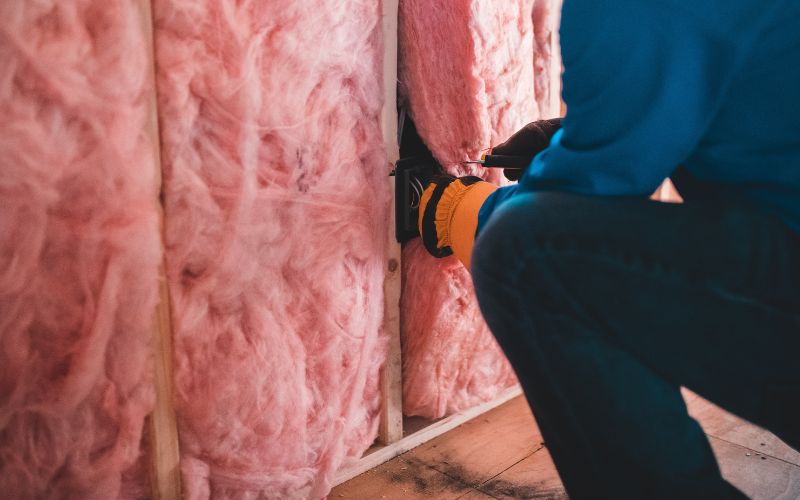With the winter chill continuing into March, an effectively insulated property has many benefits including improved thermal performance and reduced energy bills.
Here's a brief summary of the new guidance and what homeowners need to know before installing spray foam in their property.
Retrofitting
According to RICS, understanding your property is key to deciding which type of insulation to install, as the wrong type could have adverse effects on the rest of your building. The two main areas insulation can be applied to are: above the ceiling and on the underside of the roof.
Insulation at ceiling level is often referred to as ‘cold roof’ because the insulation works to keep the body of the building warm. Insulation installed on the underside of the roof is known as ‘warm roof’ and keeps the loft warm in addition to the rest of the property.
The guidance warns homeowners against combining the two together as this can significantly and negatively change the performance of the roof, the spray foam, and whole-house insulation.
Is it suitable for your home?
This will depend on your building’s individual needs and the type of insulation your property would benefit from (warm roof/cold roof).
However, RICS reinforces how spray foam is not usually applied at ceiling level because of the way it can compromise other aspects of the building such as electrical cables, lighting, and pipe work.
This is where a chartered building surveyor can advise on the most suitable insulation for your property and where best to install it.
It is imperative that the correct form of insulation is used to avoid any costly maintenance issues down the line. The new guidance reiterates how spray foam should not be installed in listed buildings.
If insulation is applied to poorly kept areas, this could increase the structure’s vulnerability to leaks and damage. Homeowners should consider the condition of existing materials, as well as its form and position, before installing any type of insulation.
The dos and do nots - update
The report issued a list to help homeowners decide which insulation would suit their property best, before choosing spray foam as their choice of insulation:
Don’t…
• Respond to cold callers offering spray foam installation
• Install spray foam in protected/listed properties without prior permission
• Carry out any maintenance works without careful planning or advice
Do…
• Seek advice from a specialist/chartered building surveyor
• Ensure your building is wind and water-tight
• Keep up with maintenance to ensure your property is in good working condition
• Think about your property’s design and position
• Speak with your mortgage provider/insurance provider about installation
Risks of spray foam installation
Spray foam insulation comes in many different forms and can be difficult to remove once installed. Where most types of spray foam are permanent, homeowners need to be aware of the effects this can have on their property.
Spray foam can conceal developing problems, such as leaks, making it harder for timber to be inspected - if at all. Hidden leaks can further contribute to the rotting away of timber in the roof.
Furthermore, the guidance outlines that poorly installed insulation can result in dampness and uncontrollable condensation. Defects may not be obvious until it is too late; and the presence of spray foam can make it difficult to carry out repair works.
RICS notes that extreme weather conditions in the UK will become a bigger concern for homeowners in the future, and those with spray foam will need to be conscious of weathering and storm damage going forward.
You can read the full RICS guidance here.
How can we help?
Our RICS Chartered Surveyors have a wealth of knowledge and experience working with homeowners and tenants, across London and the South East, to meet their needs. If you’re concerned about any of the above, contact a member of our team or speak with us today on 02380 014786. Email us at enquiries@sillencehurn.co.uk
Disclaimer: Please note this article is for guidance purposes only and does not constitute legal advice.



